— and how to focus on what matters
Article written by Farley Thomas, Co-Founder & CEO of Manageable
—
I can’t be the only one to have noticed a degree of pseudoscience creeping into programme design and management training, whether it’s an over-emphasis on participants’ learning styles or psychometric assessments that boil complex personalities down to a single profile.
New developments in learning science can be exciting, and it’s fun to try and apply the latest programme design trends in your training material. But with every new way of working, we risk distracting ourselves from the foundations of behavioural science and why coaching skills work in the first place.
Separating the pseudo from the science…
1. In assessments
Assessments aren’t a bad choice if you’re looking for a programme ice-breaker, conversation starter, or discussion initiator. There is some value in giving participants a way to articulate their behaviour patterns, preferences, and needs — and a way for other participants to understand how and why people in the group differ from them.
Assessments are not something we can act on with complete confidence, however. At worst, they can create limiting beliefs by distilling a person into something far too simple to be truly useful or applicable long-term. And they can limit people’s beliefs about themselves or others, and lead to biases being formed or reinforced. They can also be unreliable in the sense that doing them multiple times leads to different answers. Proceed with caution and ask for the psychometric properties of assessments.
2. In learning styles
It’s a similar picture if you look at learning style assessments. Knowing whether someone favours learning by doing it themselves or by seeing others doing something can help capture a little of that person’s preferences, and help both them and the trainer to get programme material to resonate. But we can’t let a learning profile become too ingrained — and we should certainly take any learning style assessment outcomes with a healthy pinch of salt.
In his book, “How We Learn: The New Science of Education and the Brain”, top neuroscientist Stanislas Dehaene claims: “The idea that each of us has a distinct learning style is a myth. Brain imaging shows that we all rely on very similar brain circuits and learning rules”.
Factors such as degree of engagement, degree of agency, job role, and expectations of the training are all far more influential when it comes to how much value a participant will take from any programme you design.
3. When using models and frameworks
We don’t need to reinvent the wheel with every learning experience; models and frameworks are useful tried and tested tools in programme design, and most trainers have their favourites. Where models and frameworks start to falter, however, is when they’re viewed as fixed or certain, rather than evolving or open to interpretation.
Neuroscientists are uncovering new findings all the time. And the world of work is changing too. Expecting the same age-old frameworks to still apply to modern-day managers is like expecting offices to still have fax machines.
Authors of the paper, “The Science of Making Learning Stick: An Update to the AGES Model”, explain: “We now challenge you to let go of other constraints based on how you may have conducted or engaged in learning in the past”. They conclude that while the principles of the AGES model (Attention, Generation, Emotion, and Spacing), for example, still apply today, programme designers can get creative and move past the model’s traditional format.
Creativity is required to adapt traditional learning science theory to the modern workplace. “The very social nature of the human brain means that making learning social brings potential for magnifying the effects of each of the other aspects of AGES”. So how can that be achieved in fully remote training programmes? That’s a challenge for today’s programme designers to overcome — and using the AGES model in an age-old way won’t cut it.
4. When bringing your programme to a close
What does experience tell you the end of a training session should look like? Perhaps a short individual exercise to reflect on the day’s learning or a full-blown feedback survey at the end of a longer programme. This might be the way that most programmes you’ve attended or even designed have concluded, but it’s not what science teaches us is the best way to draw to a close.
The Peak End Rule suggests that in order for learning experiences to be memorable they need to end on a high. This could be achieved via a short discussion with other participants to identify the highlights of the experience and develop a personal action plan. Or you may encourage participants to spend a bit of time alone to write a postcard to their future selves. These are examples of ending on a high while facilitating reflection and synthesis.
What makes programme design effective?
Learning (pseudo)science trends come and go, but I believe the foundations of an effective programme remain the same. These include:
- Conducting proper, individual benchmarking at the outset and using this to guide learning. Know the limitations of psychometrics and learning styles, and don’t become tethered to them.
- Harnessing the power of social learning, such as small-group live masterclasses.
- Investing in continuous learning throughout the year rather than a crash-course training programme. Learning styles may not be robust enough to use with confidence, but science has shown us that cramming works for no one. Participants need space away from the training material to unconsciously process prior experiences and embed their learning, so be sure to build that in.
- Thinking about the end of the programme as a key learning moment and not just an opportunity to wrap up with some admin. Then, when it does come to evaluating the effectiveness and impact of a programme, make sure you gather data from multiple sources as outlined in our four-eyes impact model.

Article written by Farley Thomas, Co-Founder & CEO of Manageable
Farley Thomas is the co-founder and CEO of Manageable, a soft-skills focused EdTech firm on a mission to give everyone at work the gift of a great manager. Through innovative learning experiences and a groundbreaking psychometric assessment, Farley and his team work to instill a coaching style of leadership in all managers. Having served as an advisor and executive coach to CEOs and worked for 20 years in financial services at HSBC, Farley knows firsthand what it takes for leaders and their teams to thrive.
Career Moves Breakfast Networking I 12th September 2024
THE TRUST PARADOX
Are you targeting low to moderate trust in your organisation? Which leader does? But what if the very nature of paid work—the transactional exchange between labour and remuneration—means that high trust cannot be achieved?
Join us on September 12th as our friends and experts from Manageable shed light on this intriguing paradox








